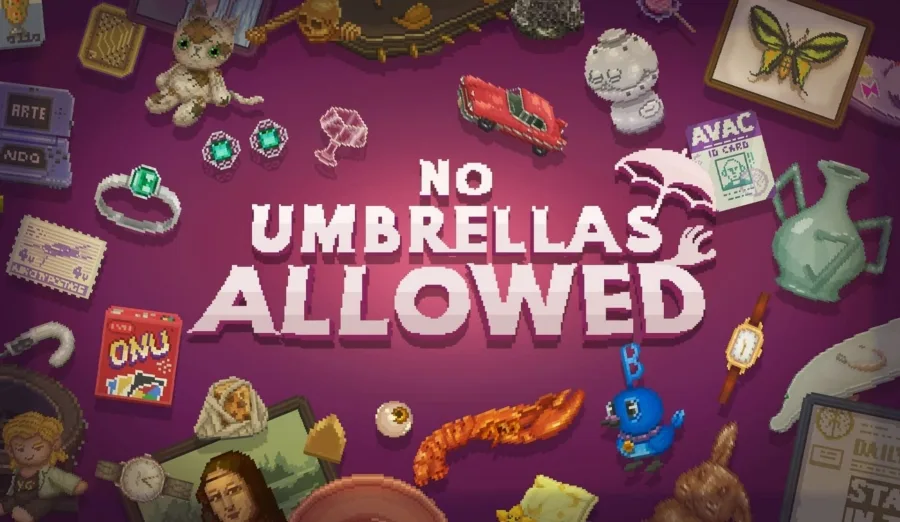No Umbrellas Allowed Spiel
I played the game in Korean, knowing full well there are a lot of puns involved in the game. Translating puns over to another language is a daunting task on its own; moreover, prioritizing what words should take priority makes it nearly impossible to create a coherent experience. The game is set in a fictional place called Ajik city, likely from a Korean word for “not yet”, and the name of the country is Mindlesia, possibly from a English word “mindless”. I suspect for most English players the combination of two names had reverse effect than it would have had on Korean players. I wouldn’t be surprised a lot of dialogues are more dull in English than it is witty and sarcastic in Korean.
There is another thing to consider — the reviews I’ve read before going into the game led me to believe it is heavily inspired by Papers Please. The actual gameplay is more reminiscent of Do Not Feed the Monkeys franchise. The player is supposed to keep track of all the side quests without the streamlined “cage” system. Both games have one thing in common; you are not to engage with the people, that is strictly against the “rules”, albeit breaking the rules is part of your choice. No Umbrellas Allowed doesn’t have those rules. You don’t have to buy low and sell high; strictly speaking, the game doesn’t reward your performance as the manager of a pawn shop. Ajik city only demands that you behave and meet the new criteria delivered to you by other characters, beginning with Darcy, the store owner.
The gameplay of No Umbrellas Allowed does have its moments, but it quickly becomes a mundane task of nitpicking the item, the customer, and even the rule book. As a pawn shop manager, not all customers are honest folks —that much is expected. With the hint of sci-fi and dystopian society that is Ajik city, the variety of dishonesty is well-meaning, but not well executed. Customers often make unreasonable case, and the case they are part of, the items, the side quests, and their backgrounds, don’t help the pawn shop to turn profit case by case. The guide book to judge items’ values is also written to be deceitful. Unhelpful bureaucracy in Papers, Please was one thing, unclear manual is another. Ever seen an episode on Mayday on bad manuals? This is it. It’s bunch of ‘if’ statements to comb through. Canonically, Darcy is not a writer, and so we don’t get a choice on which book to choose from, let alone adding a post-it note to digest the materials.
The fictional city of Ajik is created to be a lone “free” city left in the dystopia. The sci-fi dystopia drawn in the game is not the most unique, and the game doesn’t pretend to be the most original — it seems to draw parallel from those contexts. What’s supposed to bring these worlds together, I assume, is the beautiful pixel graphics. It is, yet it feels disconnected. The protagonist, Bob, is living in a place that only shows his bedroom as part of animation. The city he has to commute through only consists of three buildings and the walkways therein. And while there are some transition animations, I doubt it serves any real purpose aside showcasing the same pixel arts day after day.
Conclusions: Fun Concept, But Ungrounded
Games such as Papers, Please, Do Not Feed the Monkeys, all follow one cardinal rule: you do not interact with your subjects. There’s always the element of glass window, where only few characters are allowed to speak directly to you, and the choice solely lies on your shoulders. No Umbrellas Allowed doesn’t do that. Customers who dislike your decision, albeit the right assessment, will negatively impact your store, and some would come back later demanding compensation —these are not one-time event. It ultimately begs the question of why shift the focus of the game away from the pawn shop in the first place; too much effort was put into side contents. Running a pawn shop is what truly drew me in, and what led me to find the game rather shaky is all its extra bells and whistles.
